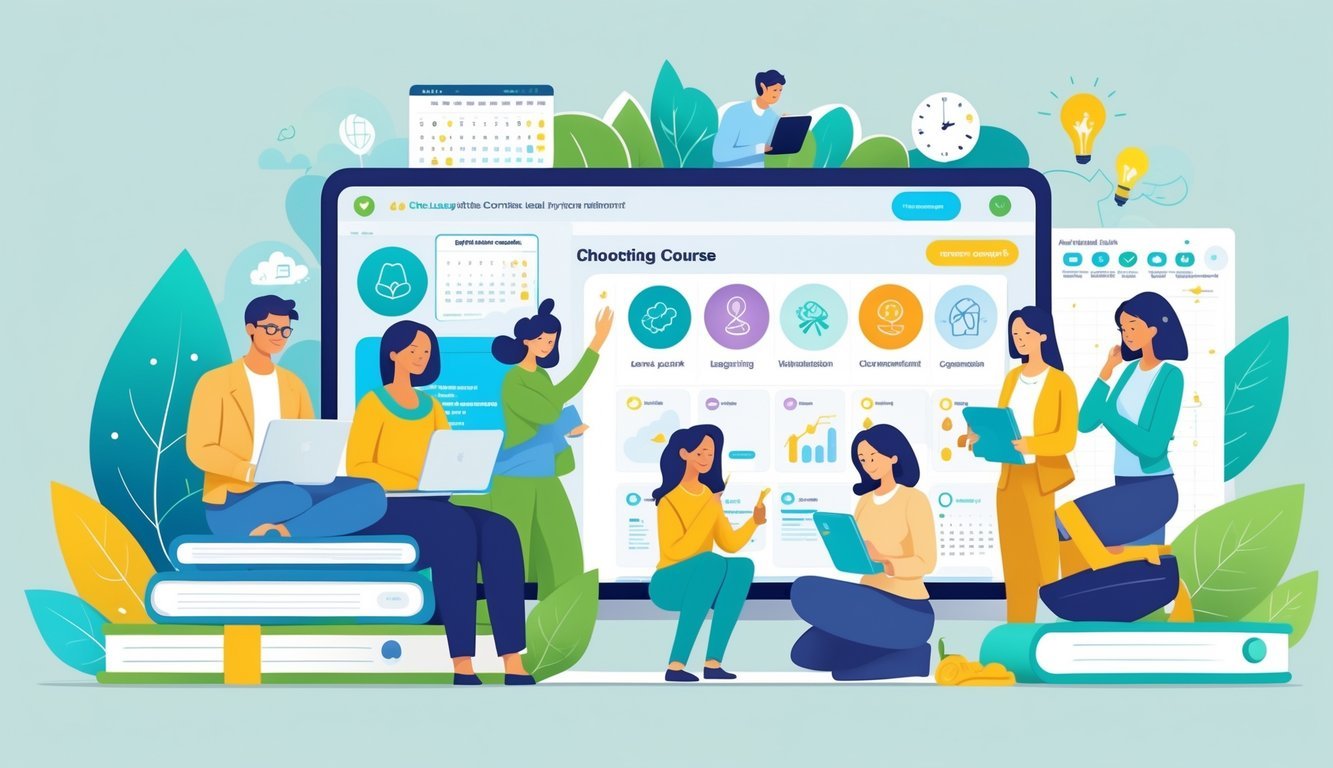PsychNewsDaily Publishers
100 Summit Drive
Burlington, MA, 01803
Telephone: (320) 349-2484
PsychNewsDaily Publishers
100 Summit Drive
Burlington, MA, 01803
Telephone: (320) 349-2484
Self-improvement courses enhance personal growth by offering practical skills in areas like communication, stress management, and leadership, available through platforms like Coursera and Udemy.

Self-improvement courses help you grow in different parts of your life—like building confidence, handling stress, or improving your communication skills. They give you practical tools you can actually use to make real changes and unlock your potential.
Maybe you want to advance your career or just feel a bit happier. There’s a course out there that fits your goals and your experience level.
You’ll find self-improvement courses online from places like Coursera, Udemy, or even Harvard. They cover all sorts of topics, so you can pick something that matches your needs and your schedule.
Learning new skills and habits through these courses can make a noticeable difference in your daily life.

There are so many courses out there, each designed to help you grow in different ways. Some focus on your habits, others on your mindset, and plenty help with how you interact with people.
Personal development programs help you understand yourself and build habits that make life better. You might learn about motivation, mindfulness, or resilience.
Often, these courses cover ways to boost your mental health and practice a healthy lifestyle. They encourage self-discovery and show you how to handle stress or bounce back from setbacks.
Many include lessons on goal setting and building discipline. Some focus on wellness techniques like meditation or time management.
You’ll find tools to stay motivated and build a positive mindset for long-term success.
If you want to move up at work or lead a team, professional growth and leadership courses can help. These courses teach leadership skills—things like strategy, decision making, and people management.
You’ll learn how to guide teams, plan projects, and improve business operations. Courses in this area often cover critical thinking and working with others.
They help you build the confidence to lead or even start your own business. You can also find classes on entrepreneurship and human resources to prepare for different roles.
Good communication can make a huge difference in life. Courses on communication skills help you talk and listen better, so your interactions get stronger.
You’ll learn techniques for clear discussions, emotional intelligence, and dealing with conflict. These classes often use real-life practice or discussion forums to build social awareness and empathy.
Getting better at communication helps with teamwork, leadership, and pretty much every relationship—personal or professional.
Courses on creativity and innovation teach you to think differently. You’ll learn methods for research, design, and working on new projects.
These skills come in handy for business and personal hobbies where new ideas matter. You’ll try out techniques to boost problem solving and spark your imagination.
Creativity courses encourage you to take risks in safe ways and help you stay open to change and growth.

When you’re picking a self improvement course, think about how you like to learn, the skills you want, and what kind of proof you want at the end. Check out how the course supports you and what extras it offers to keep you motivated.
Self improvement courses come in online and in-person formats. Online courses let you study whenever and wherever, which is great if you’re busy.
A lot of online courses include guided projects to help you use what you’re learning, especially in fields like data science or productivity.
Offline classes give you face-to-face interaction. Some people find this better for focus or making connections.
If you care about privacy or want fewer distractions, in-person courses might suit you. Pick the format that matches your learning style and daily life.
Courses go from beginner to expert. If you’re just starting out, look for basic courses that explain key ideas clearly, like time management or data science basics.
Specializations let you focus on one skill, like productivity or something for your job. You can start with a beginner course and work up to a professional certificate or even a degree if you want more in-depth knowledge.
Figure out what you want before choosing your level.
See if the course offers certificates or professional certificates when you finish. Certificates show you completed a course, while professional certificates usually mean more to employers.
Some courses provide accredited certificates or even count toward degrees. That matters if you want to add proof of your skills to your resume or LinkedIn.
Check the course’s recognition so your certificate actually helps your career or personal growth.
Good courses give you extras like quizzes, discussions, and instructor feedback to help you learn. Some even offer a community where you can swap tips or ask questions.
Student support can make a big difference if you get stuck. Look for things like email help, live chat, or office hours.
These features can help you finish the course and use what you learn in real life.

Self-improvement courses cover lots of areas that help you build skills and habits. You can learn how to spot good courses, fit learning into your schedule, and track your progress.
Most courses focus on things like time management, communication, confidence, and mindfulness.
Some also teach goal setting, stress management, and leadership.
Look for courses with strong reviews and clear outlines. Check the instructor’s experience and see if the course comes from a trusted platform.
Yes, plenty of online courses give you certificates you can add to your resume or LinkedIn. These usually show you finished the course and picked up key skills.
Adults can pick up new skills, boost confidence, and improve habits with these courses. Online formats let you learn at your own pace and use what you learn every day.
Set aside small, regular blocks of time—maybe 15 to 30 minutes a day. You can also fit in lessons during daily tasks, like listening while you commute.
Think about whether you actually feel more confident or capable after wrapping up the course.
Ask yourself if you picked up any practical tools or habits you’ll keep using down the road.
Sometimes, feedback from people around you can show if you’ve really made progress.